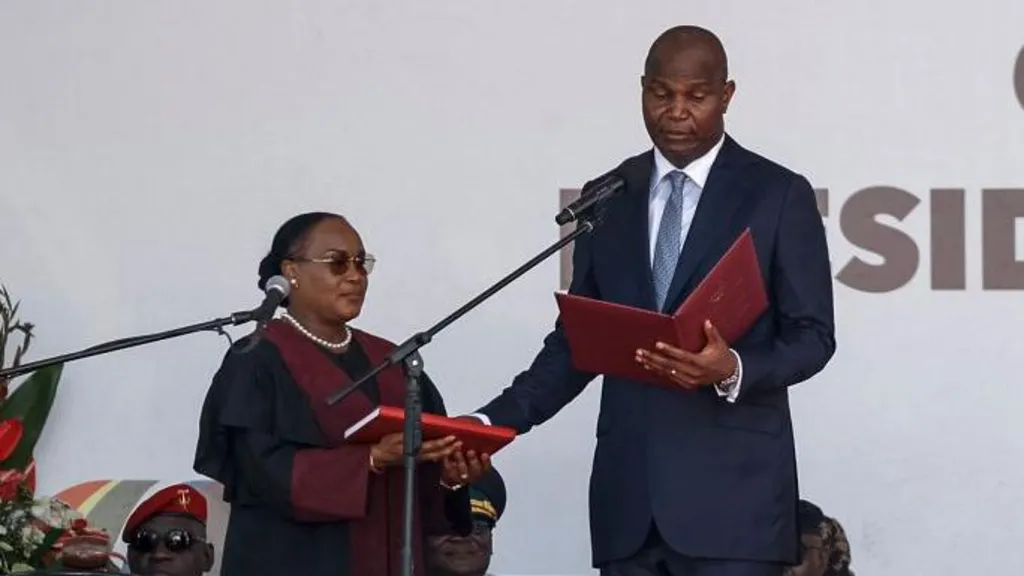Mozambique’s new President Daniel Chapo has been sworn in at a low-key ceremony in the capital, Maputo, that was marred by an opposition boycott following heavily disputed elections.
In his first presidential address, Chapo, 48, pledged to “devote all my energies” to promoting unity and human rights in a nation scarred by post-election violence.
A local civil society group says that more than 300 people have been killed in clashes with security forces since elections in October.
Eight people were killed by police on Wednesday as they protested against the inauguration, Dr Wilker Dias, head of election observer group Plataforma Decide told the BBC.
Most of the victims were supporters of defeated presidential candidate Venâncio Mondlane, who had called for a national strike in defiance of Chapo taking office.
For its part, the government had declared Wednesday a public holiday, with the streets of Maputo largely deserted and most businesses shut.
Chapo had won the election with 65% of the vote, extending the 49-year-rule of the Frelimo party.
Mondlane – who contested the election as an independent – came second with 24% of the vote. He rejected the result, saying it was rigged and called for a strike on inauguration day “against the thieves of the people”.
Addressing about 2,500 guests at the heavily guarded ceremony, Chapo said that “together, we will restore patriotism and pride in being Mozambican”.
“Mozambique cannot remain a hostage to corruption, nepotism, and incompetence,” he added.
Police fired shots to disperse crowds outside Independence Square, where the ceremony was held, as Chapo’s motorcade left afterwards.
The crowds were mostly of Mondlane’s supporters, but they included some who backed Chapo. Both groups had earlier tried to enter the venue but were barred from doing so.
“Is this a wedding with private invitations? We want to see the president being sworn in but we have been told we can’t,” Maputo resident Paulu Hamuze told the BBC.
Mondlane’s electoral campaign was backed by a small opposition party, which heeded his call for a boycott of the inauguration.
Both of Mozambique’s leading opposition parties – Renamo and MDM – also boycotted the swearing-in because they also do not recognise Chapo as the rightful winner.
Chapo succeeds Filipe Nyusi, who has stepped down at the end of his two terms.
Even those in Mozambique who wish Chapo well openly question his legitimacy, or whether he will be able to tackle the problems he has identified.
“Chapo is someone I admire greatly,” civil society activist Mirna Chitsungo tells the BBC.
“I worked with him for four years – I am familiar with his willingness to act, his openness to dialogue, and his readiness to follow recommendations from civil society on the ground.”
“However, he is assuming an illegitimate power. This stems from a fraudulent electoral process… He is taking power in a context where the people do not accept him.”







